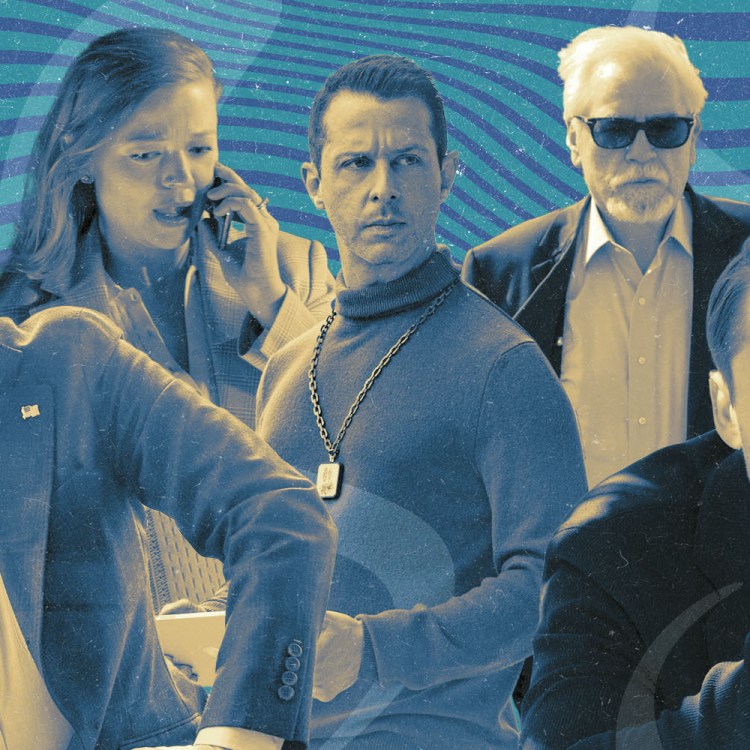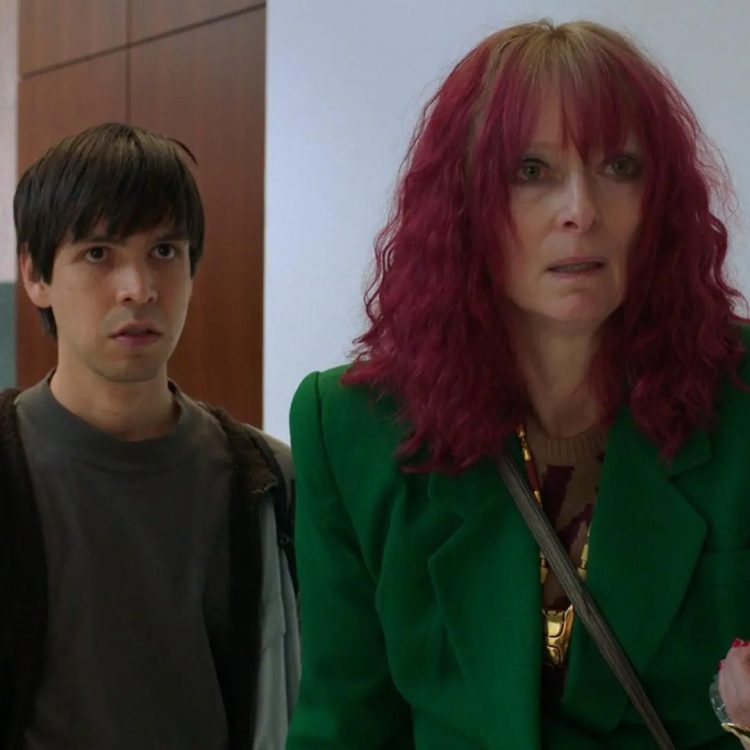David Sedaris took to the Real Time With Bill Maher stage wearing shorts and knee socks. When asked about it, he simply replied, “I look good.” (I’d argue that yes indeed, he pulled off the look.) This was, Maher observed, Sedaris’s first appearance on the show — and he quickly went down an interesting path, discussing the differences between comedians and humorists.
From there, Maher expressed his admiration that Sedaris could fill a room listening to him reading from a book. (Sedaris’s latest, Happy-Go-Lucky, was published last year; the paperback will be out in May.) “It’s the laziest form of show business,” Sedaris said.
Sedaris also discussed someone rushing the stage when he gave a commencement address at Oberlin. Maher brought up his frustration that no one has yet done that to him — which, he clarified, was a joke. (Hopefully this won’t look in retrospect like a case of tempting fate.)
The first half of the interview found Maher commiserating with Sedaris over their frustrations with the younger generation. This took a few forms, including Sedaris lamenting the idea that teenagers aren’t working after school jobs as much any more. It’s certainly a theme Maher has brought up with many of his guests, but it also felt like a strange line of inquiry to bring up for this particular guest.
Sedaris did find a way to work the format into a way for him to shift into a more storytelling-focused mode. Conversation about teenagers provided him a way to segue into a story about a volunteer job he’d had in his youth at the state mental hospital. “I was 14, strapping a naked woman to a gurney — now that’s an education!” he said.
In the interview’s second half, interviewer and interviewee clicked far better. Maher asked Sedaris about his book and writing about his father’s dementia and death. “Art is kind of a receipt for pain,” Maher said — and the moments where the two of them found common ground in turning difficult personal moments into creative work. The whole thing circled back around to the question of age and aging, as Sedaris talked about always wanting to be better at his craft — a laudable goal if ever there was one.
David Byrne Made the Case Against Nostalgia on “Real Time With Bill Maher”
The episode also had some unexpected Oscar thoughtsSome other thoughts on the episode:
- Maher’s opening monologue covered several trials and potential trials, including whether or not former president Donald Trump would be indicted in the coming weeks. He moved from there to the Gwyneth Paltrow ski accident trial — or, as Maher dubbed it, “peak Caucasian.”
- Maher, on a recent study that found that drugs and alcohol do not have a beneficial effect on creativity: “Oh shit.”
- Scott Galloway and Annie Lowrey joined Maher for the panel, with Maher kicking off the discussion by returning to the question of a potential Trump indictment. Several minutes in, the conversation took a slight detour as the three participants attempted to clarify when the phrase “sex worker” should and should not be used.
- Maher wondered if the easiest way for TikTok to lose its luster might be for the parents of Gen Z to start using it.
- The last time Galloway was on Real Time, he also argued in favor of banning TikTok in the U.S. This time out, he was more specific about why, arguing that the app was partially responsible for younger generations feeling less positively about the country.
- Lowrey took a grander view of the issue, pointing to the many contradictory aspects around the debate over TikTok; Maher also seemed to view the issue more in terms of security than ideology.
- Galloway, when discussing issues facing young men: “Compassion is not a zero-sum game.”
- Lowrey brought up another side of this, as it relates to young men becoming self-radicalized on toxic masculinity. “I don’t know how you combat Andrew Tate. What he says is monstrous,” she said.
- Galloway also argued that he and Maher bore some of the blame for the state of young men, via support and mentorship. Or, as he phrased it, “if we want better men, we have to be better men.”
- At one point during a conversation about the planet’s resources, population growth and climate change, Lowrey suggested, tongue in cheek, that Maher go vegan. Maher’s expression was, shall we say, unamused.
- Were Scott Galloway and John C. McGinley separated at birth?
- The panel discussion made for solid viewing, especially in its second half. A lot of it came down to a simple fact: both Galloway and Lowrey know a lot of things and can think on their feet very well.
- New Rules topics included topless swimming pools in Berlin, t-shirts with various messages and unsettling Home Depot ads.
- The bulk of the segment found Maher pondering the “nepo baby” question, and arguing that the popularity of sports were because it represents “the last refuge of meritocracy in America.”
- Maher did note that the children of famous athletes do sometimes become famous athletes themselves, but there’s a difference. “Laila Ali didn’t knock out 21 opponents by smacking them with her birth certificate,” he observed.
Thanks for reading InsideHook. Sign up for our daily newsletter and be in the know.


















